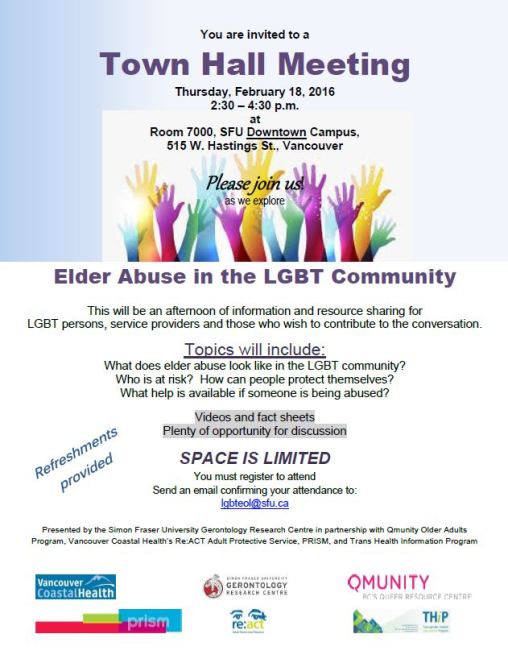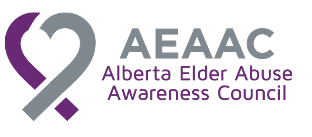Seniors are an extremely important and growing segment of investors whose issues demand attention, and their needs and priorities are a key focus for Ontario’s Investor Office (InvestorOffice.ca).The Ontario Securities Commission’s Investor Office sets the strategic direction and leads the OSC’s efforts in investor engagement, education, outreach and research. The Office also brings the investor perspective to policy-making and operations.
I became the Director of the operating branch last July, and we relaunched the Office in the fall of 2015. Since then, we have made modernizing investor education a priority through new tools and resources that recognize the changing ways that people access and interact with information. One of the ways we are doing this is through Fact Cards – digital cards containing information on investment topics that can be embedded into any website, article or blog post. This format allows organizations and individuals to deliver reputable investor education to their audiences without needing to develop the content themselves. Fact Cards cover topics that include retirement lessons from older Canadians, the basics of mutual funds and the red flags of investment fraud.
More than 20 organizations and individuals are partnering with the Investor Office to distribute and promote Fact Cards, including the Canadian Network for the Prevention of Elder Abuse. It’s a key priority for the Investor Office to develop new resources to help prevent elder abuse, and through the CNPEA’s support of Fact Cards, important information to help prevent seniors’ investment fraud and financial abuse will be distributed and promoted across Canada. We’ve received great support from various organizations who appreciate being able to provide the public with important facts from an unbiased and trusted source, but on their own websites.
All Fact Cards are built for use on desktop, tablet and mobile devices, and are available in English and French. The catalogue of Fact Cards is available at osc.gov.on.ca/factcards and will be continuously updated and expanded. We encourage all organizations or individuals with an interest in our work to contact us at with partnership ideas or thoughts on new education topics to focus on.

Tyler Fleming is the Director of the Investor Office at the Ontario Securities Commission. The Investor Office sets the strategic direction and leads the OSC’s efforts in investor engagement, education, outreach and research. The Office also brings the investor perspective to policy-making and operations.
Tyler Fleming | Ontario Securities Commission | Investor Office | Director | Toronto ON
Phone: 416-593-8092 | | InvestorOffice.ca
Join BC’s 15-member Council to Reduce Elder Abuse in Wearing Purple on June 15th
to promote World Elder Abuse Awareness Day.
Vancouver, British Columbia. June 15th is World Elder Abuse Awareness Day and the 15 members of BC’s Council to Reduce Elder Abuse (CREA) will be wearing something purple to commemorate this day and to shine a light on this important, yet seldom discussed, issue.
“The abuse of older adults - of our grandparents, neighbours, aunts, uncles or older friends - is something people rarely think about, or speak about,” says Martha Jane Lewis, CREA Chair and Executive Director of the BC Centre for Elder Advocacy and Support, “but each year thousands of older British Columbians experience some form of abuse. We receive hundreds of calls every month at the Seniors Abuse and Information Line (1 866 437-1940) from people seeking help,” she says.
By Margaret Easton
The relationship between frailty and elder abuse is receiving increasing attention in the research literature. In a previous blog, I reviewed research which suggested that normal age-related frailty leading to impairment in Activities of Daily Living (ADL’s) poses a significant risk factor for financial exploitation. The authors of that study concluded that “the need of some older adults for help and assistance in accomplishing everyday activities appears to elicit verbal abusiveness and economic exploitation, but not other forms of abuse” (Acierno et al., 2011). In this blog, I’d like to share the results of a research article published last month that strongly suggests that economic exploitation in late life leads to increased mortality (Burnett et al., 2016).
By Heather Campbell
The concept of institutional elder abuse is often associated with the mistreatment, exploitation and rights violations experienced by residents in care home settings. However, older adults in correctional facilities can also be victims of these institutional harms, and elders with dementia are particularly vulnerable if they become caught up in the criminal justice system.
Under the current system, a criminally accused individual with dementia faces a long, difficult and dangerous journey. From time to time, for example, we hear tragic reports of people with dementia languishing in prison or forensic hospitals. In early 2016, for example, a 53-year-old Yukon man with severe dementia had been in jail for six weeks awaiting a fitness to stand trial assessment. He was eventually found unfit, but remained in jail while he waited for a risk assessment to be conducted at a forensic hospital.
By Allison Jones

The forum, held at Simon Fraser University (SFU) downtown Vancouver on February 18, was well attended by LGBTQ seniors, health care providers, academics, students and other interested participants. It was the second in a series of five town hall meetings on elder abuse, hosted by Dr Gloria Gutman, presented in partnership by the Simon Fraser Gerontology Research Centre, and Quirk-e (the Queer elder riting kollective) and was held at .
Dr. Gutman gave opening remarks, introducing the audience to the reality of abuse in the LGBTQ communities and to the forms it takes, whether it be financial, physical, psychological or emotional. In some case, elder abuse presents itself as self-neglect, when an older person has no one to look after them, they may begin to neglect themselves to the point where it is considered a form of self-abuse.
Dr. Gutman received a grant from BC’s Ministry of Health to work with Quirk-e. Quirk-e members worked with Surrey Youth for a Change to write, act, direct and film three shorts (each no more than three minutes in length) with different scenarios depicting elder abuse. The Vancouver audience, which included staff from LGBTQ serving organizations, was enthusiastic. The films, although dealing with difficult topics, were refreshing in that they not only represented LGBTQ seniors, they were acted by LGBTQ seniors themselves. The shorts depicted abuse as complex and situational, with many different tensions intersecting, including family loyalty, internalized homophobia, control and gender conformity, and physical and psychological violence.
The town hall featured a number of Senior and LGBTQ senior-serving organizations including THiP, Vancouver Coastal Re-Act, SAIL (Seniors Abuse & Information Line), PRISM, QMUNITY, Alzheimer’s Society of BC, the Office of the Public Trustee and Dr.Gutman herself commenting on how LGBTQ elder abuse affects the LGBTQ seniors community. These town halls will happen or have already happened in Surrey, Prince George, Kelowna and on Vancouver Island. The group working on the grant has designed a number of LGBTQ elder abuse posters to raise the issue’s visibility and include information on how to report and document elder abuse when it occurs with LGBTQ seniors.
Please contact the Seniors Coordinator at QMUNITY or 604-684-8449 for more information.
Page 14 sur 17



















